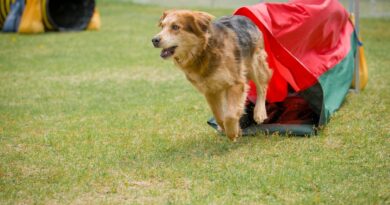
6 Signs Your Dog Has Food Allergies
 URL: https://pixabay.com/photos/english-cocker-spaniel-dog-puppy-5937760/
URL: https://pixabay.com/photos/english-cocker-spaniel-dog-puppy-5937760/
Dog food allergies are often a result of a food protein or grains like corn, wheat, and soy that cause a negative immune response, causing body cells to release compounds that cause itching and other allergic reactions. Dog food intolerance doesn’t trigger an immune response; however, its symptoms are similar to an allergy. Be sure not to confuse food intolerance with food allergy. If you suspect your dog is food sensitive, consult a veterinarian to determine the cause. Below are signs your dog has food allergies.
1. Itchy skin
If your dog is allergic to certain foods, they might get an irritated, itchy skin condition called allergic dermatitis. It can happen anywhere in the body, especially the ears, paws, rear end, and stomach. When a dog gets itchy skin, it begins scratching, licking, chewing, rubbing against surfaces, and rolling on the ground. Consider replacing your dog’s current diet with legume free dog food to see how it reacts to it.
2. Hives
Hive is a skin condition that occurs once a dog reacts to allergic foods. The dog gets itchy red bumps that you can feel or see if it has short hair. The irritation from hives and itchy skin causes a dog to scratch and bite the affected area, which leads to broken skin, causing an infection. It may also cause hair loss.
3. Gastrointestinal symptoms of food allergies in dogs
Gastrointestinal food reactions are symptoms of a particular diet that a dog digest, utilize, or absorb. Reactions to a particular diet result from unknown causes but may be linked to a dietary compound and ingredient, sudden diet change, or an additive.
Sudden, short-lived gastrointestinal symptoms like diarrhea and vomiting are most likely not caused by food allergies; however, food allergies may cause chronic symptoms like diarrhea with or without bloodstains, mucus in stool, abdominal pain, straining to pass stool, abdominal gas, poor body condition, weight loss, and vomiting. If your dog suffers from severe vomiting and diarrhea may be hospitalized for supportive care, fluid, and antibiotic administration.
4. Rare symptoms of food allergies in dogs
Rare symptoms are not common but may occur in some dogs. They include nasal discharge, breathing issues, seizures in predisposed dogs, weight loss from severe diarrhea and vomiting, and secondary urinary tract infections caused by overgrown skin bacteria.
5. Behavioral symptoms associated with food allergies
These are also rare symptoms and are mostly a result of discomfort from all the above symptoms. They include withdrawal or reduced interest in playtime, frequent shaking and scratching of ears, loss of interest in food, restlessness, frequent scratching on surfaces.
6. Chronic ear or paw infection
Ear infection in dogs could be due to several reasons, including diet involved. Dogs already suffering from food and environmental allergies are more susceptible to ear infections. These allergies lead to microscopic inflammation that promotes bacterial overgrowth or yeast organisms on your dog’s skin. However, yeast in your dog’s diet doesn’t cause a yeast infection. Consider having your dog’s hypoallergenic diet tested by a vet to see its effects on the dog’s symptoms.
Endnote
It’s very easy to mistake food intolerance for food allergies. Before coming to any conclusions, have your vet determine the cause of any food reaction symptoms. Consider testing different foods to find the right diet for your dog.







